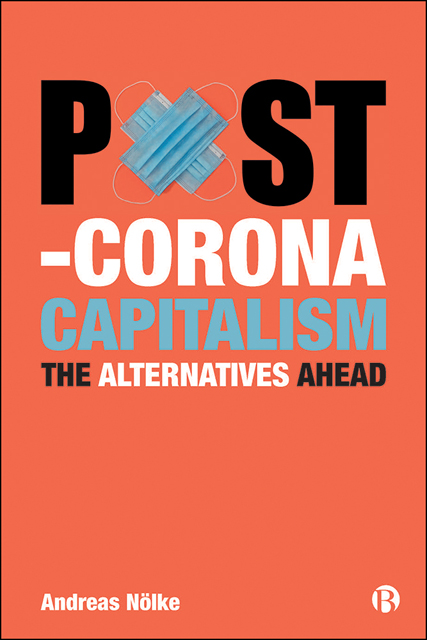Book contents
- Frontmatter
- Dedication
- Contents
- List of Abbreviations
- Acknowledgements
- Preface
- 1 Introduction: Confronting a Multidimensional Crisis of Capitalism
- Part I Capitalism and Society
- Part II Domestic Institutions of Capitalism on the Demand Side
- Part III Domestic Institutions of Capitalism on the Supply Side
- Part IV The International Institutions of Capitalism
- Part V Anthropocene Capitalism
- Part VI Geo-economic Shifts in Global Capitalism
- Part VII Ideologies in Contemporary Capitalism
- References
- Index
Part VI - Geo-economic Shifts in Global Capitalism
Published online by Cambridge University Press: 13 October 2022
- Frontmatter
- Dedication
- Contents
- List of Abbreviations
- Acknowledgements
- Preface
- 1 Introduction: Confronting a Multidimensional Crisis of Capitalism
- Part I Capitalism and Society
- Part II Domestic Institutions of Capitalism on the Demand Side
- Part III Domestic Institutions of Capitalism on the Supply Side
- Part IV The International Institutions of Capitalism
- Part V Anthropocene Capitalism
- Part VI Geo-economic Shifts in Global Capitalism
- Part VII Ideologies in Contemporary Capitalism
- References
- Index
Summary
So far, we have studied the impact of the coronavirus crisis with regard to general issues that potentially can affect every economy – although we often have distinguished between the different challenges in the Global North and the Global South. However, the discipline of International Political Economy also studies the shifts in global economic power relations between (groups of) countries (Balaam and Dillman, 2014: 266–377; Shaw et al, 2019: 153–262). Among the most prominent topics are the historical effects of imperialism and colonialism and the related North–South dependencies, increasingly complemented by the rise of mid-income economies such as BRICS.
While we cannot do justice to all potential geo-economic shifts caused by the coronavirus crisis, three aspects are particularly important. Obviously, this prominently includes the impact of the crisis on the China–US struggle for global economic hegemony (Chapter 27). However, it is equally important to study the impact of the crisis on EU economic governance: does it lead to further integration or rather to increasing disintegration (Chapter 28)? Finally, the pandemic went hand in hand with a massive increase in individual surveillance in many countries. This leads us to the question how the pandemic impinged onto the political economy of security relations within and between states (Chapter 29).
- Type
- Chapter
- Information
- Post-Corona CapitalismThe Alternatives Ahead, pp. 167 - 168Publisher: Bristol University PressPrint publication year: 2022



